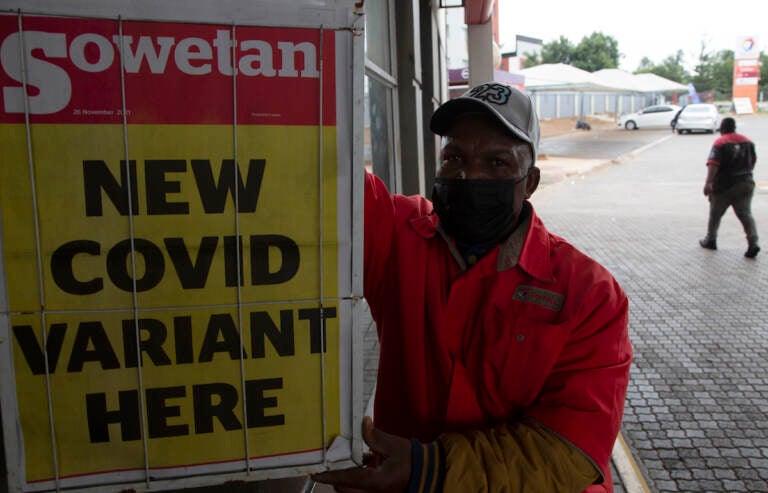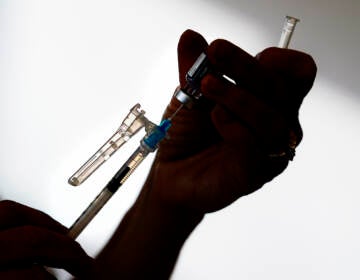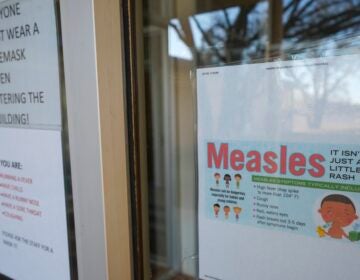Omicron: a reality check
What we know and don't know about the new COVID variant omicron?
Listen 49:00
A petrol attendant uses next to a newspaper headline in Pretoria, South Africa, Saturday, Nov. 27, 2021. As the world grapples with the emergence of the new variant of COVID-19, scientists in South Africa — where omicron was first identified — are scrambling to combat its spread across the country. (AP Photo/Denis Farrell)
The latest coronavirus strain, named omicron, was first identified last week in South Africa and Botswana. Since then, the variant has turned up in countries throughout the world. While it has not yet been detected in the U.S., experts believe its arrival is inevitable or is likely already circulating. Little is known about omicron other than it contains many mutations that may make it highly transmissible, but it has already prompted governments to institute travel bans, drug companies to scramble for new vaccines, and some people to panic. Today on Radio Times, we’ll get a reality check on this newest variant of the coronavirus – how it works, what is concerning about it, and what we can do to avoid it. Our guests are microbiologist SUSAN WEISS of the University of Pennsylvania’s Perelman School of Medicine and Atlantic science writer KATHERINE WU.
WHYY is your source for fact-based, in-depth journalism and information. As a nonprofit organization, we rely on financial support from readers like you. Please give today.





